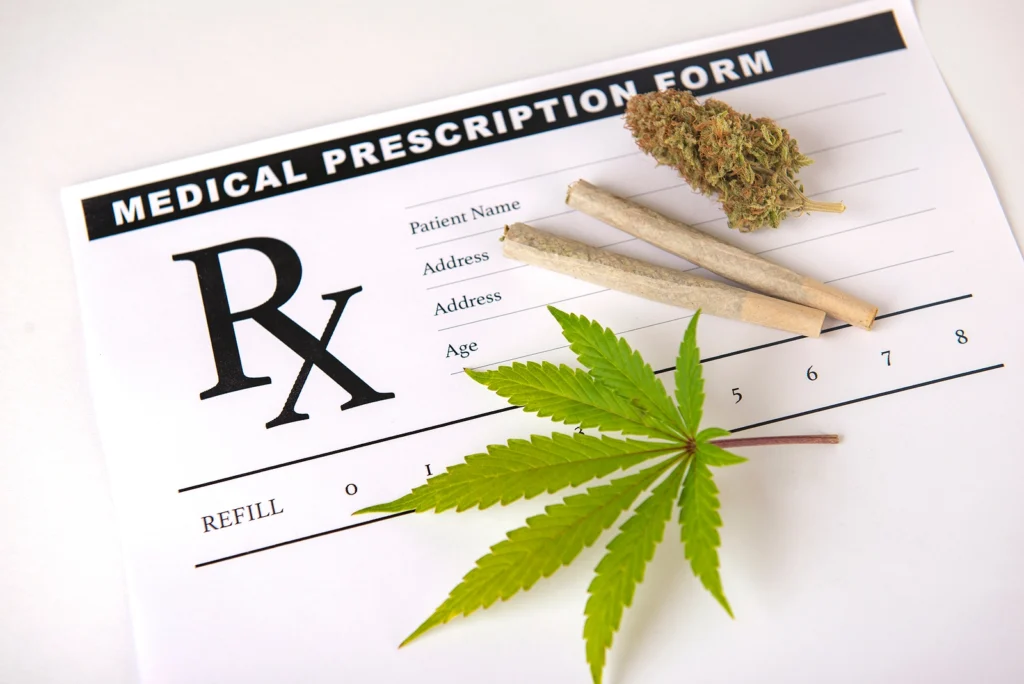Post-Concussion Syndrome
Get Your Card NowMedical Cannabis and Post-Concussion Syndrome : A Scientific Perspective
Introduction
Post-concussion syndrome (PCS) is a complex disorder in which symptoms persist beyond the typical recovery period following a traumatic brain injury (TBI). Common symptoms include headaches, cognitive difficulties, sleep disturbances, anxiety, and depression. Traditional treatments often focus on symptom management rather than addressing the underlying causes. Recent research suggests that cannabis and its cannabinoids, particularly THC and CBD, may offer therapeutic benefits for PCS sufferers.
The Role of the Endocannabinoid System in Brain Health
The endocannabinoid system (ECS) plays a crucial role in regulating brain function, neuroprotection, and inflammation. The ECS consists of cannabinoid receptors (CB1 and CB2), endogenous cannabinoids (endocannabinoids), and enzymes responsible for their metabolism. THC and CBD, the two primary cannabinoids in cannabis, interact with this system, influencing pain perception, mood regulation, and neuroinflammation.
CALL US NOWCannabis and Symptom Relief

Pain Relief: Headaches and migraines are common in PCS. Research indicates that cannabis can alleviate headache pain by interacting with CB1 receptors in the brain, modulating pain perception and reducing inflammation. Studies show that patients using cannabis report significant reductions in headache frequency and intensity ([3, 4]).
Neuroprotection: Cannabinoids may protect brain cells from damage caused by injury. Research suggests that cannabis can reduce excitotoxicity, oxidative stress, and inflammation, which contribute to neuronal damage following a concussion ([3, 5]). By enhancing neuroplasticity, cannabis may promote recovery and cognitive function restoration.
Increased Blood Flow: Studies suggest that cannabis increases cerebral blood flow, potentially aiding in brain healing ([3, 4]). Increased oxygen and nutrient delivery to damaged areas may accelerate recovery and alleviate cognitive deficits associated with PCS.
UAnti-Inflammatory Effects: Neuroinflammation is a hallmark of PCS. Cannabis has potent anti-inflammatory properties, primarily through CB2 receptor activation. By reducing inflammation in the brain, cannabis may mitigate long-term damage and improve overall brain function ([3]).
Clearance of Toxic Chemicals: Following a concussion, the brain releases toxic chemicals, including excitatory neurotransmitters like glutamate, which can exacerbate injury. Cannabis may help clear these harmful substances and reduce secondary damage ([3]).
Considerations and Risks
While cannabis shows promise, it is essential to consider potential risks:
Temporary changes in mood, anxiety, and sleep patterns ([1]).
Psychoactive effects of THC may contribute to symptom relief but may not necessarily indicate neuroprotection ([1]).
Current research on cannabis for TBI remains inconclusive ([6]).
Consultation with a healthcare professional is advised before using cannabis post-concussion ([7]).
Conclusion
Cannabis offers a multi-faceted approach to managing PCS symptoms, including pain relief, neuroprotection, increased blood flow, and inflammation reduction. However, more extensive clinical trials are needed to establish definitive efficacy and safety guidelines.